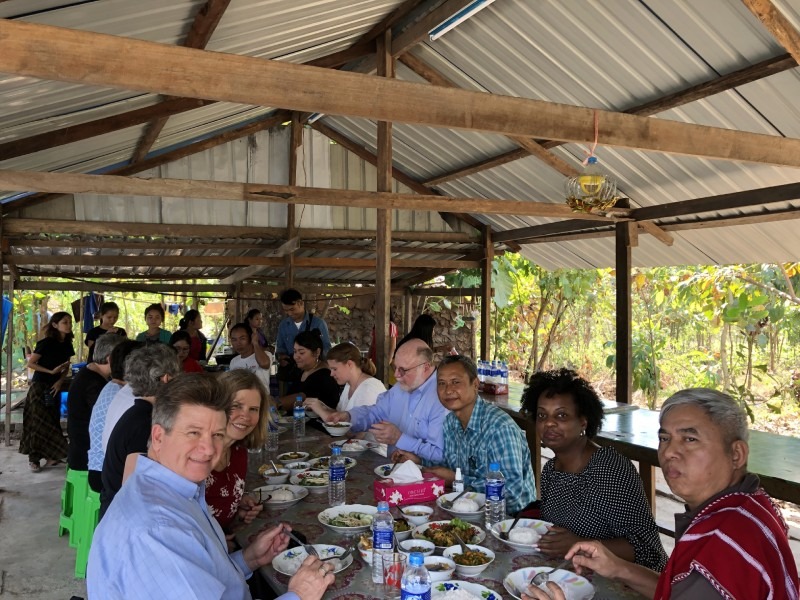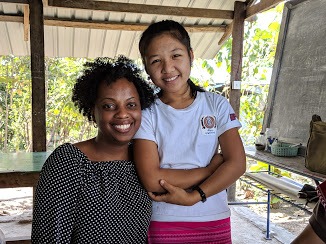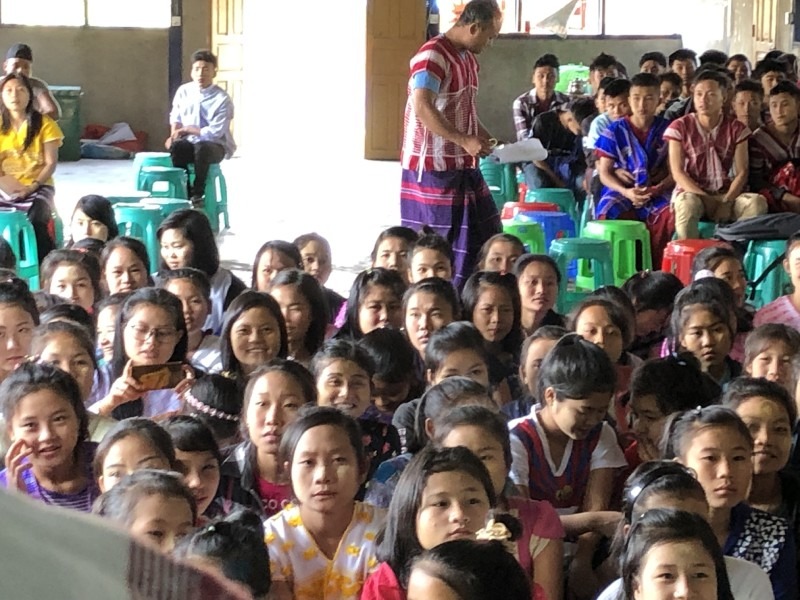
Rev. Marsha Scipio, Associate General Secretary for Missional Initiatives & Partnerships was part of a delegation who went on a short-term mission trip to Malaysia this past January. Here are her reflections about the trip.

As the delegation of American Baptists made its way through one Ethnic Group meeting after another, I have to admit that I was struggling to find a glimmer of hope. The first three days of our advocacy and discovery trip were spent in Malaysia meeting with refugees from Myanmar. We had seven different meetings with the ethnic groups. In my mind I kept saying, “You are all refugees from the same nation; why could we not all meet together?”
I came to the realization that the custom of separation of states by ethnicity in their homeland had been transported to Malaysia, where they are considered refugees in the eyes of the government: all are susceptible to random police raids, vulnerable, … “Stateless” is their shared identity.
As we boarded the plane to Yangon, I recall feeling a sense of sadness and I asked myself, “Where is the hope for so many of these refugees?” Many of the ethnic leaders expressed their doubts that things would improve sufficiently in their homeland for them to return home. I know that biblical hope requires that we live in the tension of the present ordeals of life and the future God has promised. Nevertheless, I struggled.
But hope came that Sunday morning. We had traveled from Yangon to the Karen State. We decided to worship with the students living in one of the IDP (Internally Displaced Persons) schools that Sunday morning. Amidst the smiles, the dancing, the worship that showed their unadulterated love for God, I felt my spirit lifted. As we talked with the young people and they shared their dreams, I was amazed at how the Holy Spirit had given them visions for their future that surpassed the confines of the camp in which they lived.
So as we made our way back to the hotel that afternoon, I knew what the subject of my sermon the following day would be: “A Long-Lasting Hope.”

Here is an excerpt:
A long-lasting hope is a hope that is alive and well in the midst of our suffering, not a candy-coated, “everything will be alright” half smile. A long-lasting hope is understanding, as theologian Jürgen Moltmann states, that “Hope finds in Christ not only a consolation in suffering, but also the promise of the divine protest against suffering.” There is no consolation in suffering apart from such a protest.
In other words, we cannot continue to turn our backs against suffering, but we must join with our brothers and sisters in recognizing that God does not will suffering and stand with those who are experiencing pain, knowing that eventually “God’s kingdom will come.”
Divine Protest is to be like Anna, going back to the temple every day, praying and fasting saying to those who are watching that Our God is greater than the present circumstances. Divine Protest is to be like your brothers and sisters in Malaysia who have organized to protect the refugees living in that country. Divine Protest is to be like the children in the IDP school singing love songs to Jesus and dreaming for their futures. Divine Protest is about coming alongside refugees from all ethnic groups saying we have not forgotten you.
Divine Protest is why we are here this week. We are here to let you know that your American Baptist Family will continue to walk with you. I know you are hoping for peace in your nation and at it has been over 70 years. Keep on worshiping, keep on praying, keep on fasting. Keep up this divine protest because the Lord your God is with you.
That is how we live with long-lasting hope.

As I looked out at the faces staring back at me at the completion of my sermon, the Holy Spirit reassured me that no one is “stateless” who has made Jesus Christ their Lord and Savior. We all can live with a long-lasting hope because we belong to the kingdom of God.